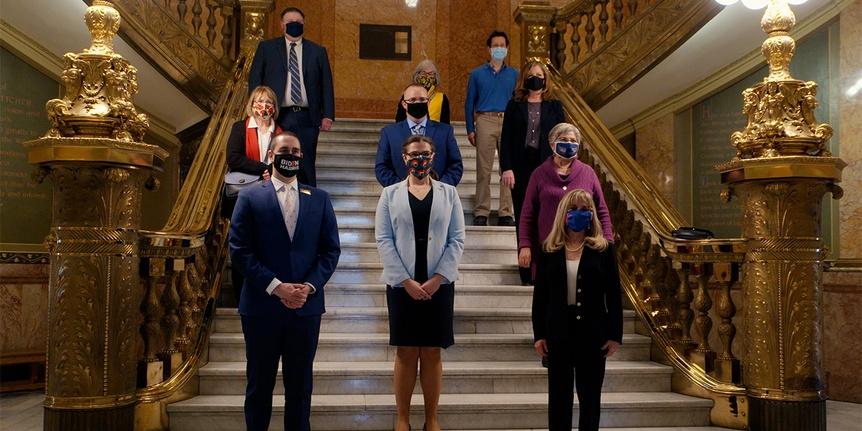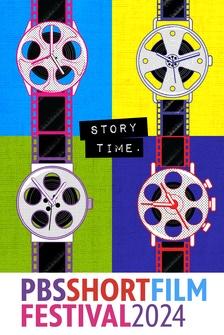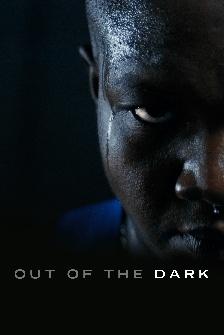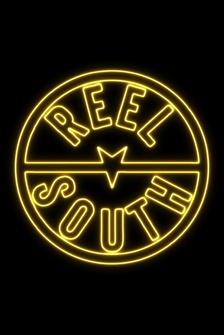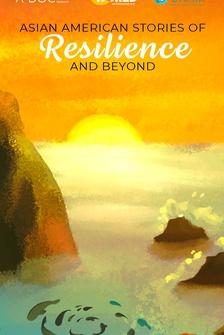(gentle jazz music) (car horns beeping) (whistle blowing) ♪♪ ♪♪ ♪♪ - I'm Isaac Knapper, formerly incarcerated.
Did about 32 years, state and federal.
- My name is Bobby Wallace, formerly incarcerated.
I served 22 years and four months in Angola.
- My name is Thad Tatum, formerly incarcerated individual who did more than 28 and 1/2 years in Louisiana State Penitentiary, known as Angola.
Upon leaving Angola in 2011, I had this idea of forming a peer support group, because I wanted to know what we can do to try to make a transition back into what they know as a civilized society.
I don't think enough can be said, I don't think enough light can be shined on the difficulties that we face upon coming home, because we're actually strangers, coming back into a foreign land.
- You know, Tatum, I was listening to you, and it kinda, it give you flashbacks.
And I think that's one of the things that, it kinda, when we talk to each other, we can relate to each other, and we can feel each other's pain and struggles, past struggles and struggles right now that we go through psychologically.
- What's your challenge now?
What is your greatest challenge in being out here?
- I still have problems, and my wife, she brings it to my attention all the time.
I have a huge bed, but I only use this much space on the end and she said, "Why don't you come over to the middle of the bed?"
Just to please her, I'll try to get to the middle, but soon as she fall asleep, I'm right back on that end.
The beds in prison, only about this wide.
You get so used to sleeping in that little spot for so long until, when you do enter society and you still have that same small area in your mind.
- I find myself in that same situation.
I got a queen-sized bed, I sleep on the edge of the bed like this, intentionally, because I'm used to feeling where the danger zone is at.
This is a practice that I've had, and that's what this peer support group helps us with, identifying the things that we're not recognizing.
But because we can recognize it, we can express it to other people, "Man, you still put toilet paper on the toilet seat?
"You still take one pants leg out?
"You still walk on the right side?"
- When you said, "Take your one pants leg out," and these people that are listening to this, you spoke so fast they may say, "Oh, what'd he mean by taking one pants leg off?"
Explain that.
- It's a protection thing.
- Can I say where that came from?
- Yeah, please do.
- (censoring beep) Killed a guy on a toilet, he had his pants pulled down, like this here, and (censoring beep) walked in the bathroom, hit him in his chest, knife that long.
When that happened, everybody started taking one leg.
Even though we home now, some of us still doing that.
I'm guilty for it myself, I intentionally-- - All to the day to where it's comfortable.
- Yes, it's comfortable.
- And there's room.
It ain't hurt nobody.
- And that from, the protectiveness, you know, to comfort.
- To the comfort.
- As Knapp was explaining about how the guy hit the other one in the chest with a knife, I found myself chuckling.
I found myself chuckling, and then I realized, man, you've been through so much trauma and drama that you chuckle at a gruesome scene like that.
- Yeah.
- Because that was a part of my everyday life.
- It's leading me to wanna ask Bobby, well, how would you define institutionalized?
(dramatic music) (whistle blowing repeatedly) - Every day I would hear a whistle, which controlled nearly my every move.
Upon waking up, I would hear a whistle.
Going to the kitchen, I would hear a whistle.
Walking in a straight line, I would hear a whistle.
Going on the yard, (whistle blowing) off the yard, to go to visit, count time, recount time, I would hear a whistle.
A whistle will blow 15 to 20 times a day.
Subconsciously, it's been instilled in my mind the importance of that whistle.
When people like myself has been incarcerated for so long, and you instill something constantly, every day, every day, every day, then it comes important, no matter how much you try to compartmentalize it.
You can't, you don't have the power to control your subconscious mind.
Because you can be walking, and you can smell something that'll reel your mind into thinking about something else.
That whistle is with me forever, because it controlled me for so long.
When I come, and this whistle been in my mind (whistle blowing) 8,157 and 1/2 days, of hearing it 15 to 20 times a day, you let me come out, without talking to me, without asking me, "How can I help you?
"What's going on in your mind?"
You just say, "Go be normal."
And here I am, I'm dressed, got my little lining, looking normal, but in my mind, I can't function like everybody else because this whistle meant something important to me.
It's just a whistle to you, it's just a sound to you.
It's a control mechanism for me.
You wanna do it again?
- That was nice.
- Yeah-- - Starting to feel something, starting to feel something.
- [Crew Member] You did a good job.
- That's it?
- [Director] Yeah, it's lunch.
- Man, I was just getting warm.
- You wanna go again?
- Yeah, I wanna go again.
- Okay.
- Ready?
- You did good.
- [Director] If you're feeling good.
- Because my wife like to play sometime, and she'll slap me, and I'll turn around, you doing something like this, you tripping, because it's just a reflex thing, all right?
So, she developed this thing, when we sleep sometimes, she'll come up behind me and spoon me when I'm sleeping, and she'll put her hand right here, and pull herself towards me.
And I'll break her hand, and I turn around and I look at, say, "What you doing?"
And she say, "What you tripping on?"
I said, "No, what are you tripping on?"
Because when she do it, she humping me.
- Like Knapper, like yourself, we in a big old bed.
When we go to bed, we laying up and we watching TV, all curled up together.
Oh you go to bed like they go to bed.
You don't have clothes on, you don't have all these different thing.
So when I woked up and you all, on me like this, you know and my mind is, I don't know about you, hold up, time out, what you doing?
You know, what your body doing touching my body?
You still living in this environment, even though you're not in that environment.
I'm waking up fighting.
And I hit the girl in her nose, almost broke the nose.
- Umhuh.
- It was bad.
- I remember one time, we was in the peer support group, and Tatum had mentioned it, that some of us are institutionalized before we even make it to the institution.
And I think it has something to do with our upbringing and our environment.
Singing about Angola, you know, when we was kids.
What's the song we sung when we was kids?
♪ Angola when I was one ♪ ♪ The booked me for shooting that gun ♪ ♪ Way down yonder on that farm ♪ ♪ Picking that cotton all day long ♪ ♪ Angola when I was two ♪ - And those things reach all the way to the, number 10.
And you would be able to identify, but, just think about, eight, nine, 10 year old kids, sitting around in the neighborhood-- - [Isaac] Singing about Angola.
- Talking about, indoctrinating theyself with the thoughts and then the idea of going to a place it's almost inevitable for them to go to.
- At an early age, when I got convicted, I was in the process of fighting and training for the Junior Olympics.
My life got derailed.
Things went off from there to Angola.
Wind up going to penitentiary for a crime I didn't commit, getting convicted and everything, and, I continued to use my skills while I was there, boxing.
(intense percussive music) I started boxing at the young age of nine years old.
1971 was the year.
I was just another black kid who lived in New Orleans housing project.
My life revolved in a three-bedroom project house, with my Mama, two brothers, and seven sisters.
As for myself, I am Isaac Knapper.
My exclusive star twinkled bright, dreaming of becoming a boxing champion of the world.
But at the age of 16 I was convicted of a murder I did not commit.
Upon my arrival at Angola, despite of my disposition, boxing probably saved my life.
But I did not call it boxing in prison.
I called it fighting.
It was no longer the sport I loved.
It was survival.
My shape, it was impeccable.
I would jog for four hours, running almost at a fast pace, until my body would just get numb.
I wanted to see, I wanted to feel tired, I wanted to get tired, I was angry, and I just wanted to feel human again.
Wednesday nights were fight nights at the "A" building.
For 368 wins, 98 knockouts, and I only lost once, I was a power puncher.
I've always loved boxing, but I did not know if the love was still there.
After my case was overturned in 1991, I was feeling the love I once lost.
Yes, I continued to pursue my boxing career, and I was one match away from Barcelona Olympics.
But that's another story.
Yeah, that's right.
(crew chattering indistinctly) - 'Cause I do really think that, you know, everything that you guys are doing with the peer support group, and understanding more the psychological aspects and the trauma aspects is something that like, I don't think people really understand.
- They look at you in jail, you're supposed to be in there.
- Right.
(chuckles) Yeah.
- They don't think about what we can do to make it better, so when they do come home one day, they can find themself in a better place.
They figure if you have some trauma, good, we're doing our job then.
- I went to prison at 21 years old.
They took all my 20s, they took all my 30s, they took all my 40s, and I come home at 50 years old.
It's like I got to relive that which I've missed.
- Now, listening to you, I'ma ask y'all this question.
And you was just saying you got locked up when you was 21.
You say 16 was the first time you got locked up.
I got locked up at 22.
It might just be me, but I doubt it.
When I got back out this time, I was feeling 22 again, in my mind.
- That's not-- - That's not-- - You know what I'm saying?
I was 22 in my mind.
Though I was 45, - That's not unusual.
- I was 22 in my mind.
When you left, everything stopped.
- Right.
- And when you came back, you went back to what?
What you left, what you remember.
- Right.
- 'Cause you got to try to pick up where you left off.
- [Isaac] That what you left, you know, years ago, - Right.
- it's not there no more.
- Camera speeding.
And.
(gentle music) - I was sentenced to more than 190 years in Angola.
From the time I was removed from my family and sent to prison, the only constant in my life was the trust of my mother.
Through the ups and downs of my incarceration, through all the missed holidays, new births in the family, graduation and death, my mom was the constant through it all.
She was my connection to a world outside the walls.
We became friends.
But after serving 28 and 1/2 years, I left prison with mixed emotion, both joy and bitterness.
I was happy to leave such a place as Angola, but I was bitter of not being able to enjoy my freedom with my mom.
My mom, who had been my rock and solace all my life, passed away seven months before I was released.
Now all I have are memories of what was, and the thoughts of what could have been.
I returned home at the age of 50.
Almost two years later, I became the father of the most beautiful baby girl.
I don't know if this is divine intervention, but I often wonder if my mom could have returned through the spirit of my daughter.
Whenever my daughter does something fussy, I think of my mom.
Whenever she acts worried about me being home alone, I think of my mom.
There are so many resemblance of their actions, and ways, that it keeps me smiling.
It's funny to think that we can laugh about this matter right now, you know, because, it's a lot of humor in it, but, if you think about it, you know, it's not so funny, right?
Because for so many years, man, not only did they limit our, you know, a... our growth and capacity for a mental concept of our mind, they limited our choices, they limited our abilities to make those choices.
When we look at everything in totality, we understand how entrapped we were.
We understand how we took the abnormal and made it normal.
By no mean think that we're sitting here, you know a... glorifying that which we went through, - Right.
- You know a... because that's not our intention.
It's not our intention at all.
What we trying to do is trying to make sense of it, to give the viewing audience an opportunity to question the fairness of what we're now going through, not what we went through so much, but what we're now going through.
Is it fair?
- [Director] Guys, thank you so much.
It's 12 anyways, so I'll let you guys go.
(crew chatting indistinctly) (crew chatting indistinctly)

